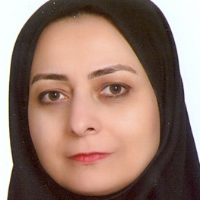Nejat Briefcase: A tool for drug education
On account of the prevalence of psychoactive substances and drug abuse and its diversity of forms and methods of use, along with the reduction in the age of drug abuse, a continuing medical educationof physicians with these issues is necessary. Although it is legally forbidden, most physicians have no close contact to these drugs, and this is not effective for training, prevention and treatment of drug addiction. In this regard, offering an educational tool is needed, if in close contact to these drugs. The 'Nejat Briefcase' is a tool designed for the purpose of training and familiarization of psychoactive substances and drugs. The aim of this study is to investigate the points of view of the participants in the continuing medical education program, 'Introduction to types of psychoactive substances and drugs' and about the Nejat Briefcase, in the Isfahan University of Medical Sciences (IUMS).
In this descriptive, cross-sectional study, all the general physicians (108 people) who participated in the continuing medical education program, 'Introducing types of psychoactive substances and drugs,' in the Isfahan University of Medical Sciences (IUMS), in 2012 - 2013, were considered. In this program, in order to introduce various types of psychoactive substances and drugs to the physicians, as well as acquaint them with their forms, methods of use, and prices, the new educational tool (Nejat Briefcase), containing various types of psychoactive substances and drugs and the related educational packages, such as, booklets and brochures, was used. A researcher-made, valid and reliable questionnaire was distributed at the end of program to gather the participants' points of view about the educational program. Data was analyzed by the SPSS and t-test and descriptive statistical tests.
The response rate to the questionnaire was 83%. Forty-four people (41%) were women and 64 (59%) were men. The mean total score of the participants' points of view was 4/58 ± 0/45 (out of 5), which indicated the positive points of view of the participants. Ninety-seven people (90%) were satisfied with the program.
On account of the participants' positive points of view on the Nejat Briefcase and their consent to it, using varied and attractive educational tools for psychoactive substances and drug training and producing tools similar to the Nejat Briefcase are proposed.
- حق عضویت دریافتی صرف حمایت از نشریات عضو و نگهداری، تکمیل و توسعه مگیران میشود.
- پرداخت حق اشتراک و دانلود مقالات اجازه بازنشر آن در سایر رسانههای چاپی و دیجیتال را به کاربر نمیدهد.


